In the vibrant world of tattoo artistry, few names resonate with the same finesse and skill as Jorge Segovia more known as Mr. J Fineline. Renowned for his meticulous approach and innovative techniques, Mr. J has carved a niche in the industry with his unique style that seamlessly blends fine line work with intricate details. His tattoos tell stories, capturing not just images but the emotions and experiences of those who wear them.
In this exclusive interview, we delve into Mr. J Fineline's journey, exploring how he transitioned from a passionate artist to a respected professional in the tattoo community. We discuss the inspirations behind his work, his creative process, and the significant milestones that have shaped his career. Join us as we uncover the artistry and dedication that define Mr. J Fineline's remarkable contributions to the world of tattooing.
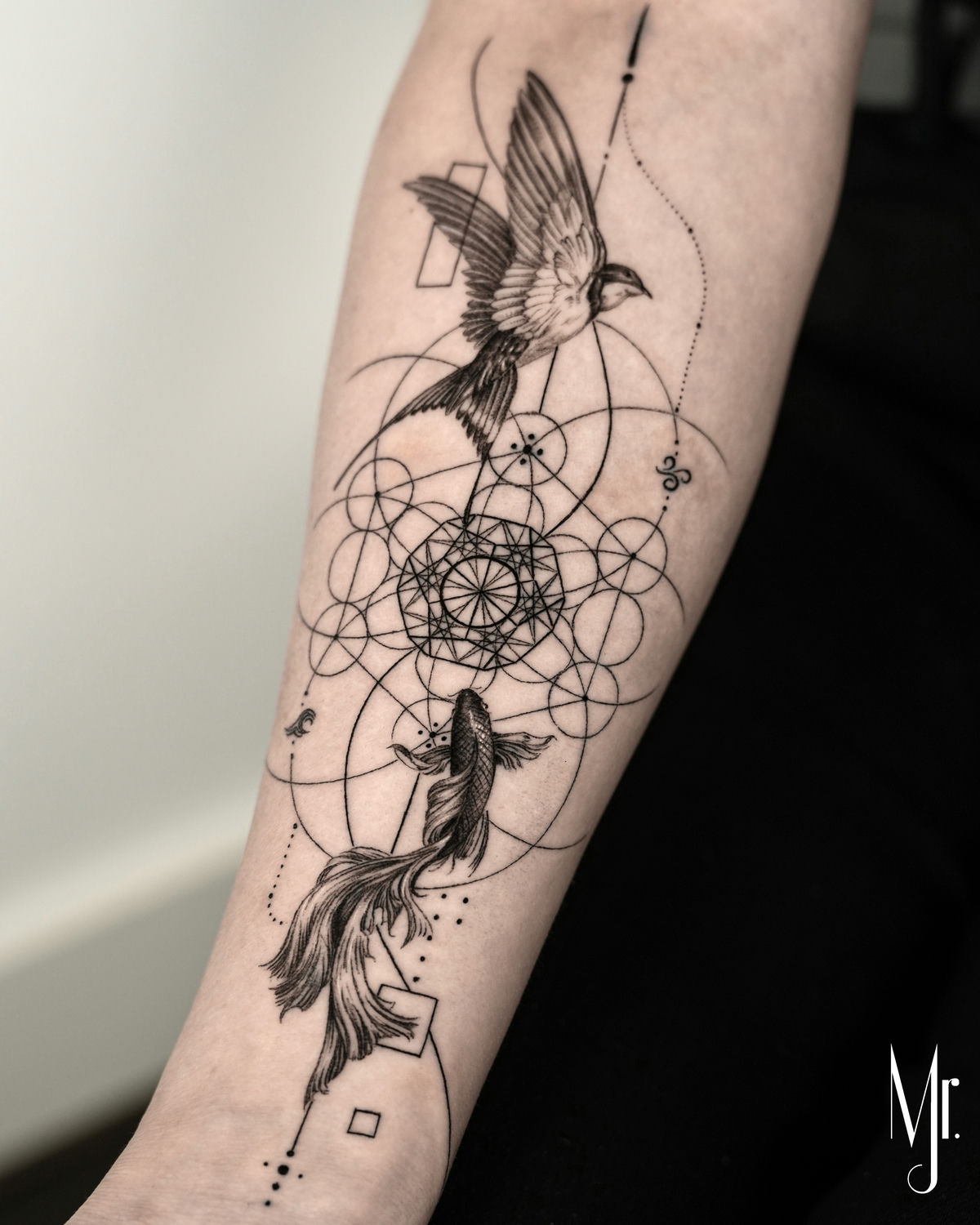
How did you first become interested in tattooing, and what inspired you to pursue it professionally?
- Tattooing became a natural extension of my passion for storytelling and visual arts. After studying music, I realized tattooing allowed me to create deeply personal, permanent art that resonates on a more intimate level. The connection between the artwork and the person wearing it inspired me to pursue it professionally.
Can you tell us about your first tattoo experience, either as an artist or as a client?
- My first tattoo was a small rose on my wrist. As an artist, the experience was captivating; it allowed me to engage with my creativity while forming a unique connection with the skin. It felt meditative and confirmed that tattooing was my true calling.
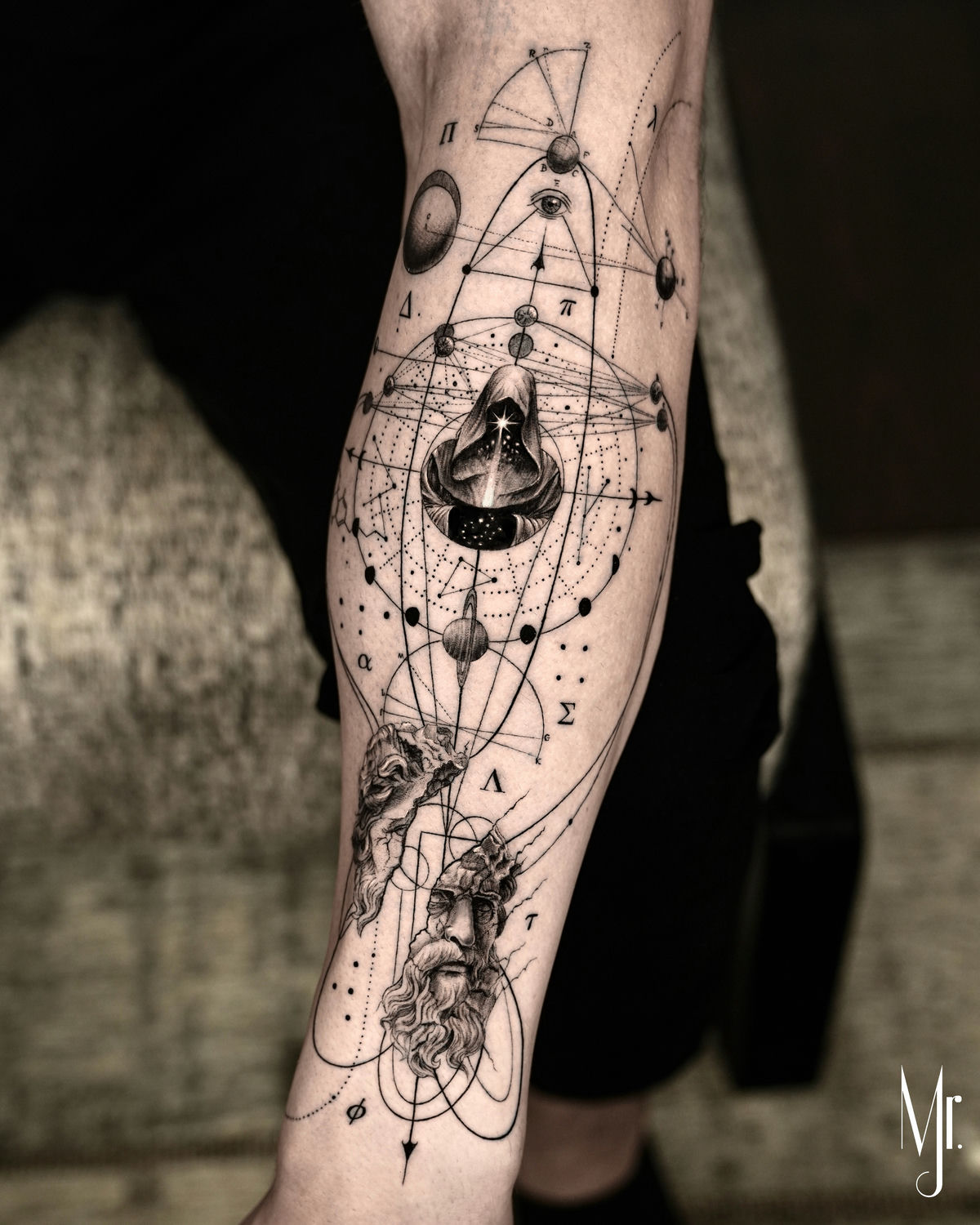
How would you describe your unique artistic style?
- I describe my style as “Georealism,” a blend of hyper-realistic organic figures and fine geometric elements. The organic aspects, like animals or nature, are highly detailed, while the geometric patterns introduce a cosmic, almost spiritual dimension. This balance creates a deeper narrative within each tattoo.
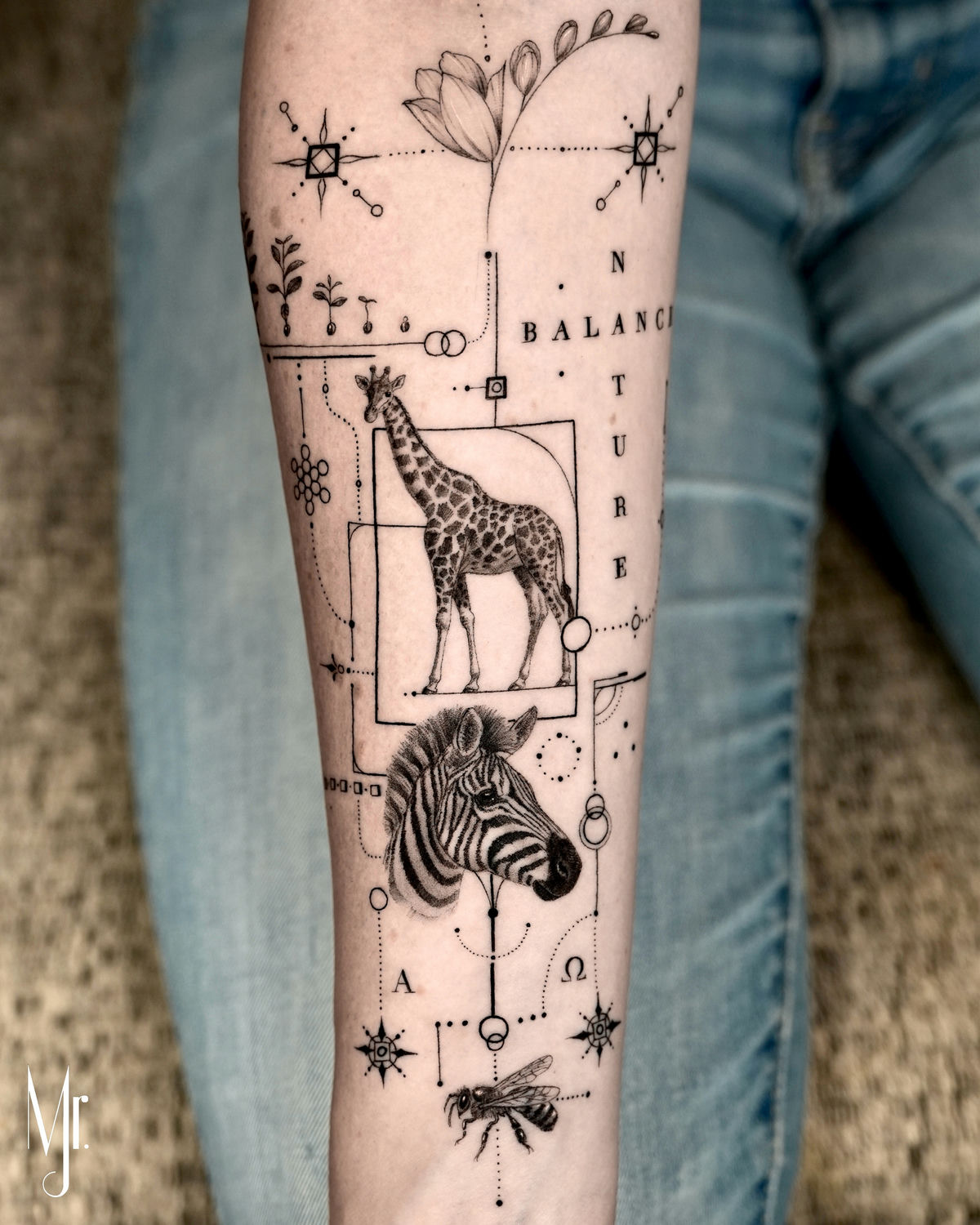
What inspired your focus on fine line and single needle techniques?
- I was drawn to the precision and elegance that fine line work allows. It’s challenging yet incredibly rewarding. The single needle technique enables me to create intricate details that align with the minimalist, yet deeply personal, aesthetic I aim to achieve in each piece.
Your work is very detailed; however, they are not miniature pieces. How do you manage to work on a fairly large scale using single needle techniques? On average, how many sessions does it take for one project?
- For larger pieces, like an outer forearm tattoo, I typically spend 8 to 10 hours in a single session. It’s a full day of meticulous work, layering details and building depth with each stroke. A single needle allows for intricate precision while maintaining a larger scale.
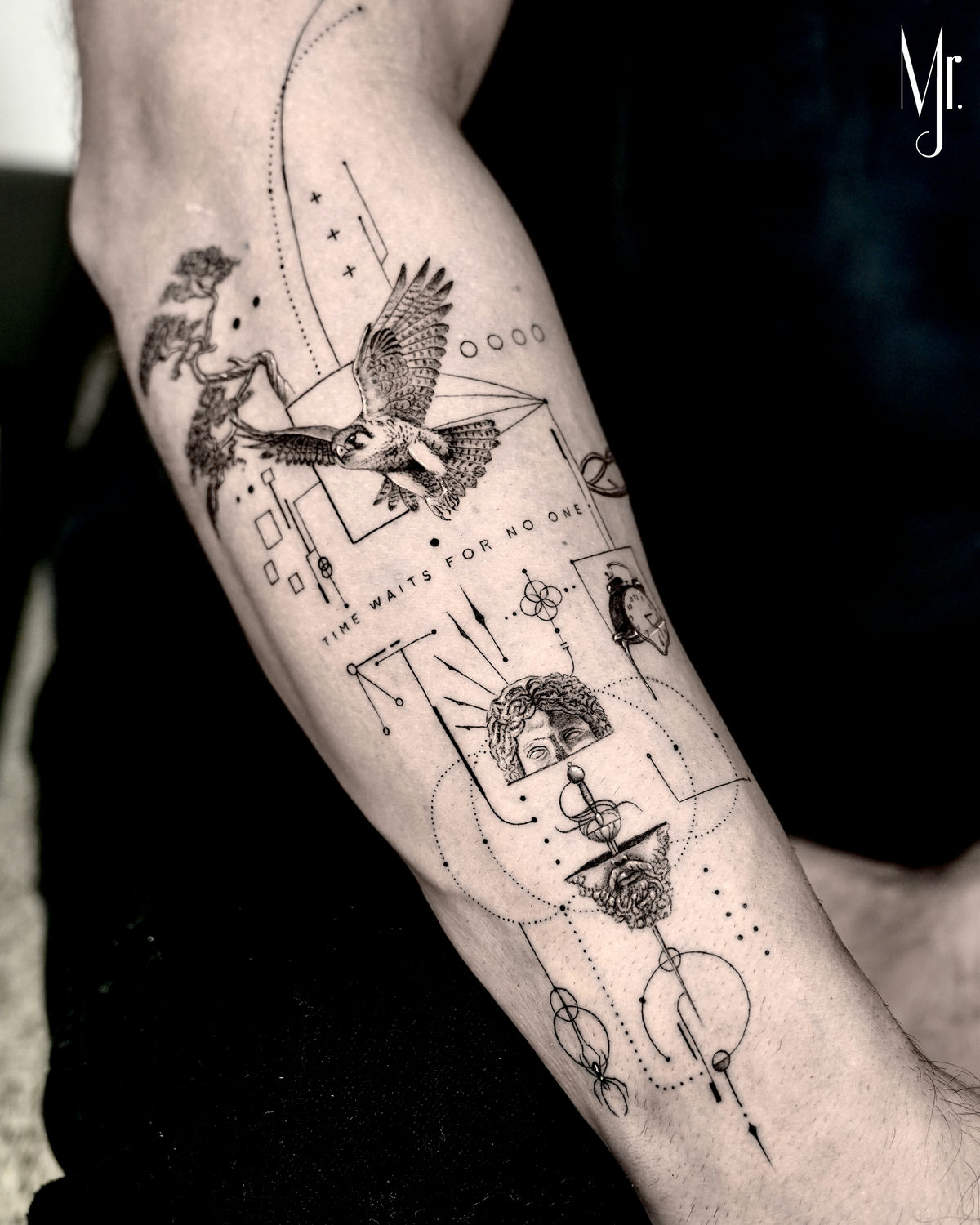
What draws you to microrealism and geometric patterns in your work?
- Microrealism allows me to capture the incredible beauty of the small details we often overlook in nature. Combining this with geometric patterns taps into ancient symbolism and creates a connection between the organic and the cosmic, elevating the tattoo beyond a simple design.
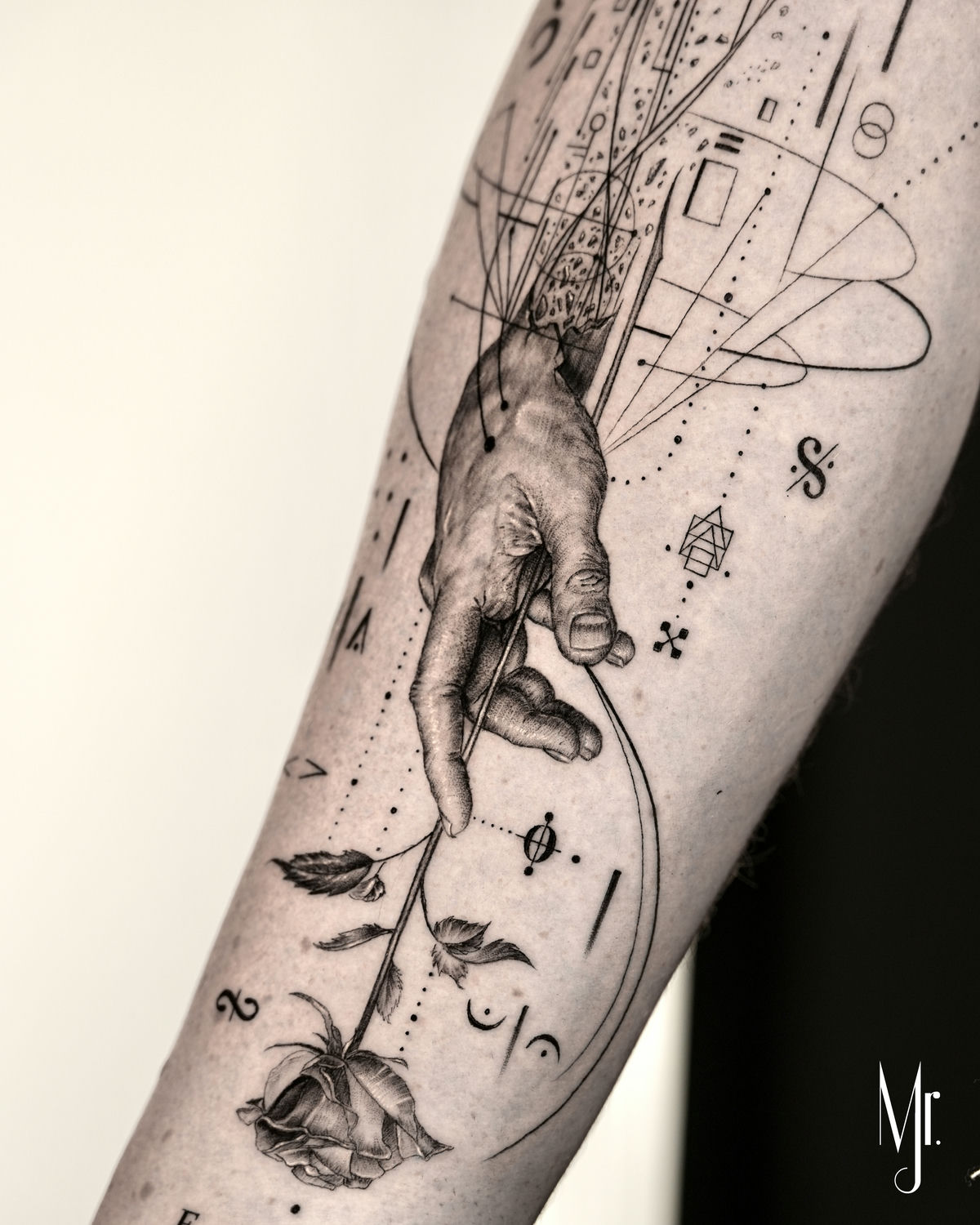
Do you have any particular sources of inspiration, whether in art, nature, or other tattoo artists?
- Nature is my biggest muse, especially animals and plants. Their forms, movements, and intricate designs always inspire me. I also look to ancient civilizations that used geometry and symbolism in ways that still resonate today. Artistically, I admire those who push the boundaries of tattooing and approach it as fine art.
What is your process for developing a design with a client from concept to execution?
- I begin by understanding my client’s story and emotions. I use these insights to craft a visual narrative that reflects their thoughts and feelings. I design the tattoo with artistic freedom while staying true to their story, ensuring the final piece is meaningful and personal.
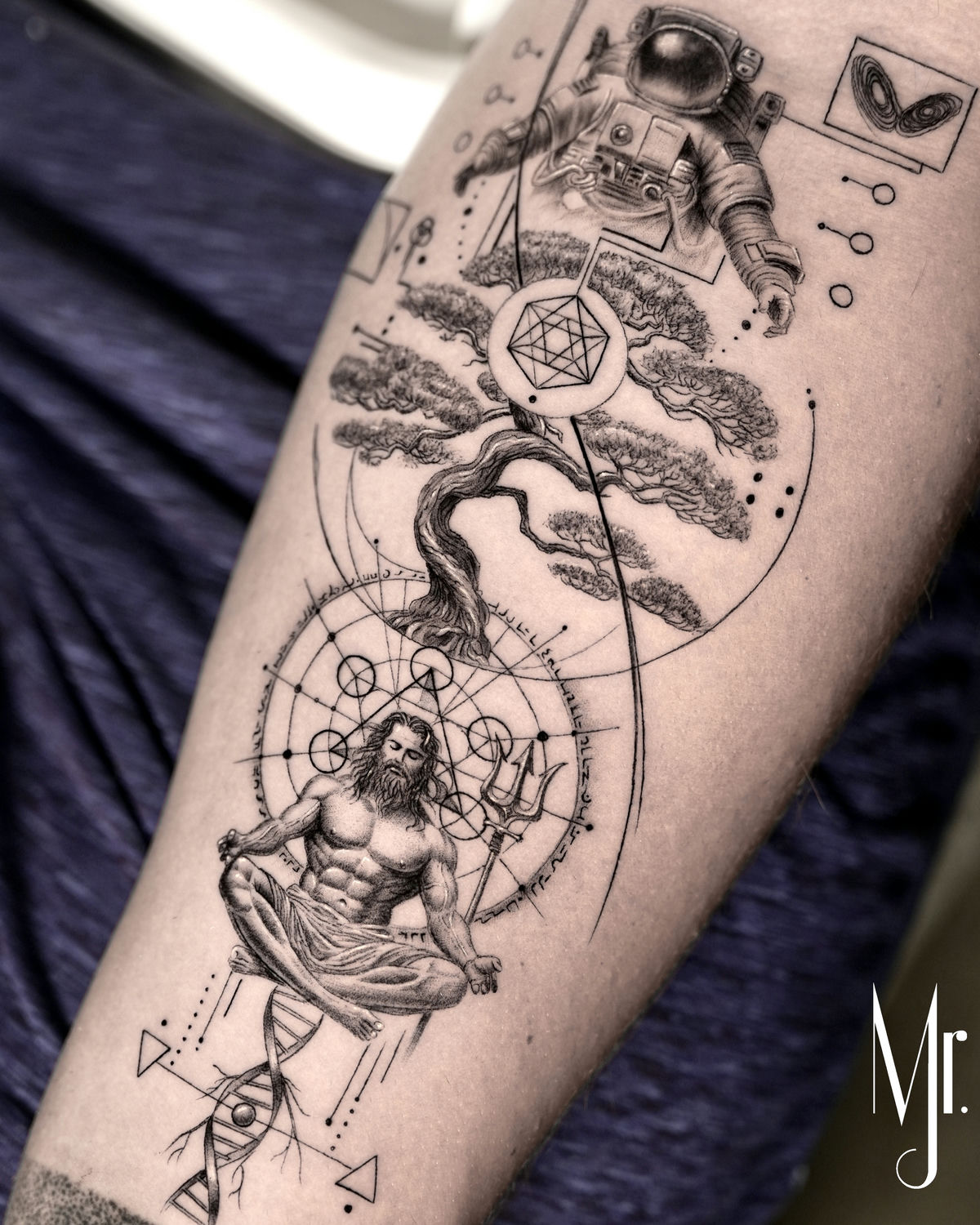
You emphasize tattoos as personal stories—can you share a memorable experience where a tattoo became deeply meaningful for a client?
- One of the most meaningful tattoos I created was for a client whose mother lost both legs. She wanted a piece that showcased her mother’s strength, and together, we designed a visual representation of resilience and love. It was deeply moving to see how much the tattoo meant to her.
How do you handle clients who are unsure about what they want, and how do you guide them through the process?
- I encourage clients to focus on the emotions or message they want the tattoo to convey. From there, we explore visual elements that align with those ideas. I guide them through the process with sketches and discussions to ensure they’re comfortable and confident with the final design.
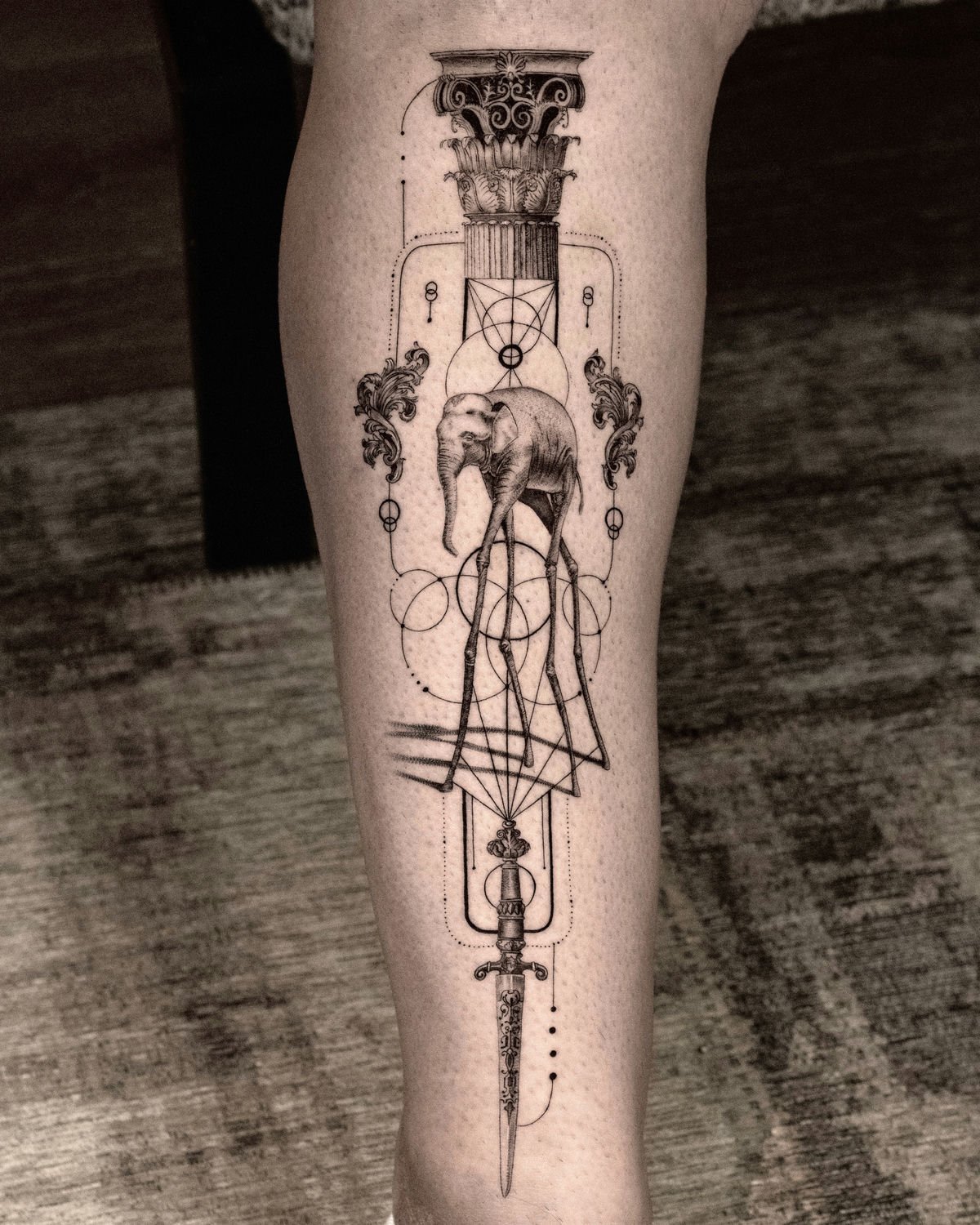
Have you ever had a request that pushed you out of your comfort zone? How did you approach it?
- Yes, there have been times when clients requested hyper-detailed work on tricky areas of the body. I always take the time to prepare, plan the design for that specific area, and take a slow, methodical approach during the session to ensure every line is perfect.
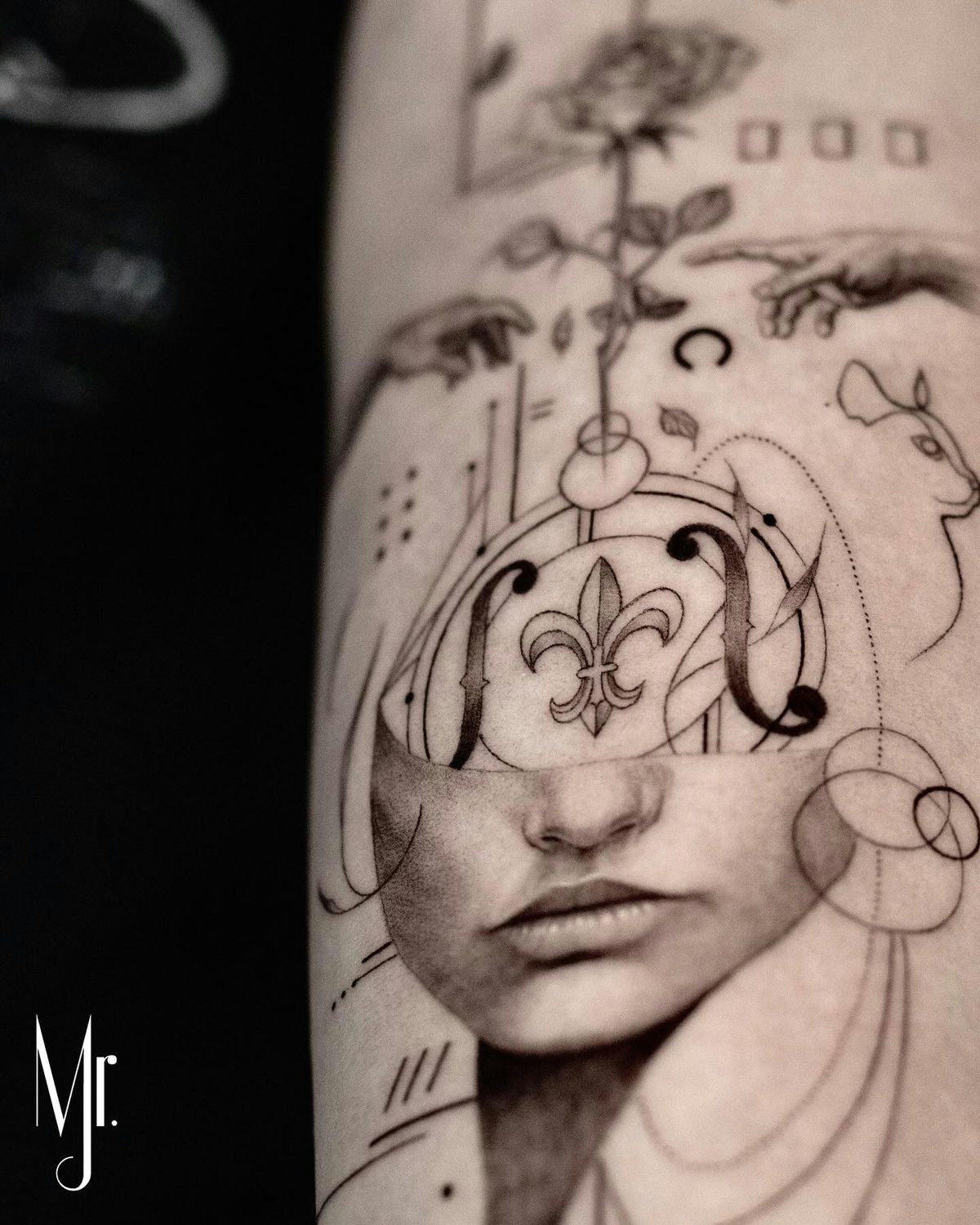
What has been the most significant milestone in your career so far?
- Collaborating with Rothschild Fine Art was a major milestone. It validated the idea of tattooing as fine art and opened doors for me to present my work in a gallery setting, which helped spread awareness of tattooing’s potential as a higher art form.
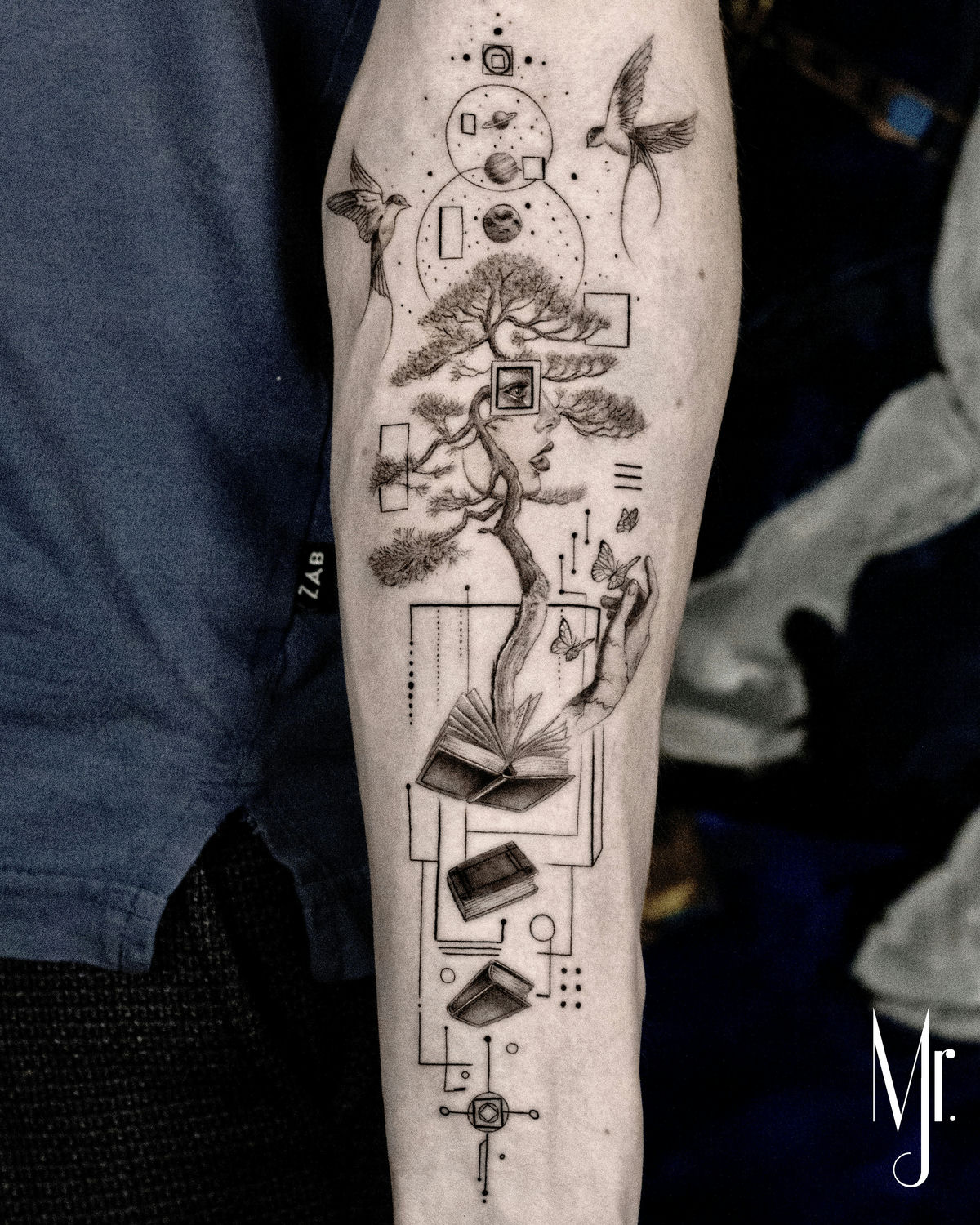
How has your studio, The Fine Line Gallery, impacted your work and creativity?
- The Fine Line Gallery offers a luxurious and relaxing experience for my clients, which enhances the entire process. Clients are made comfortable with food, drinks, and entertainment options, making the tattooing experience less daunting. I’ve had clients fall asleep during sessions because, when done correctly, fine-line tattooing isn’t painful. This environment allows me to focus on my craft and create my best work.
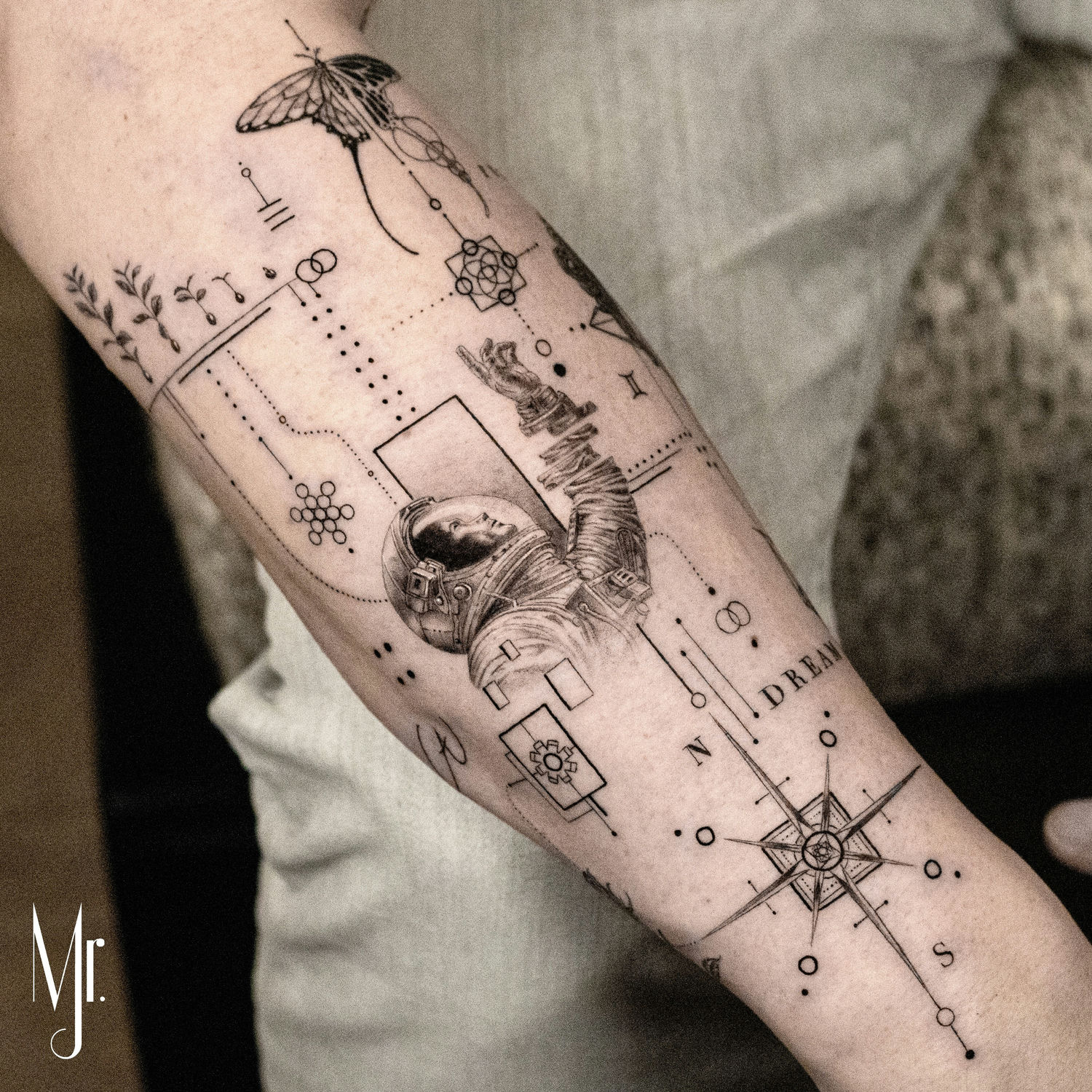
What do you see as the most rewarding aspect of being a tattoo artist?
- The freedom tattooing provides is one of the most rewarding aspects for me. I can decide when and where to work, and the feeling of creating a meaningful, permanent mark on someone’s life is unparalleled. Each tattoo session is meditative for me—I go into a trance where I focus entirely on making the tattoo as perfect as possible.
Tell me about your experience participating in tattoo conventions. How have they influenced your career?
- Tattoo conventions have allowed me to connect with the global tattoo community, exchange ideas, and stay on top of industry trends. They’ve also helped build my reputation and introduced me to new clients. It’s always inspiring to meet other artists and see the diversity of work being created worldwide.
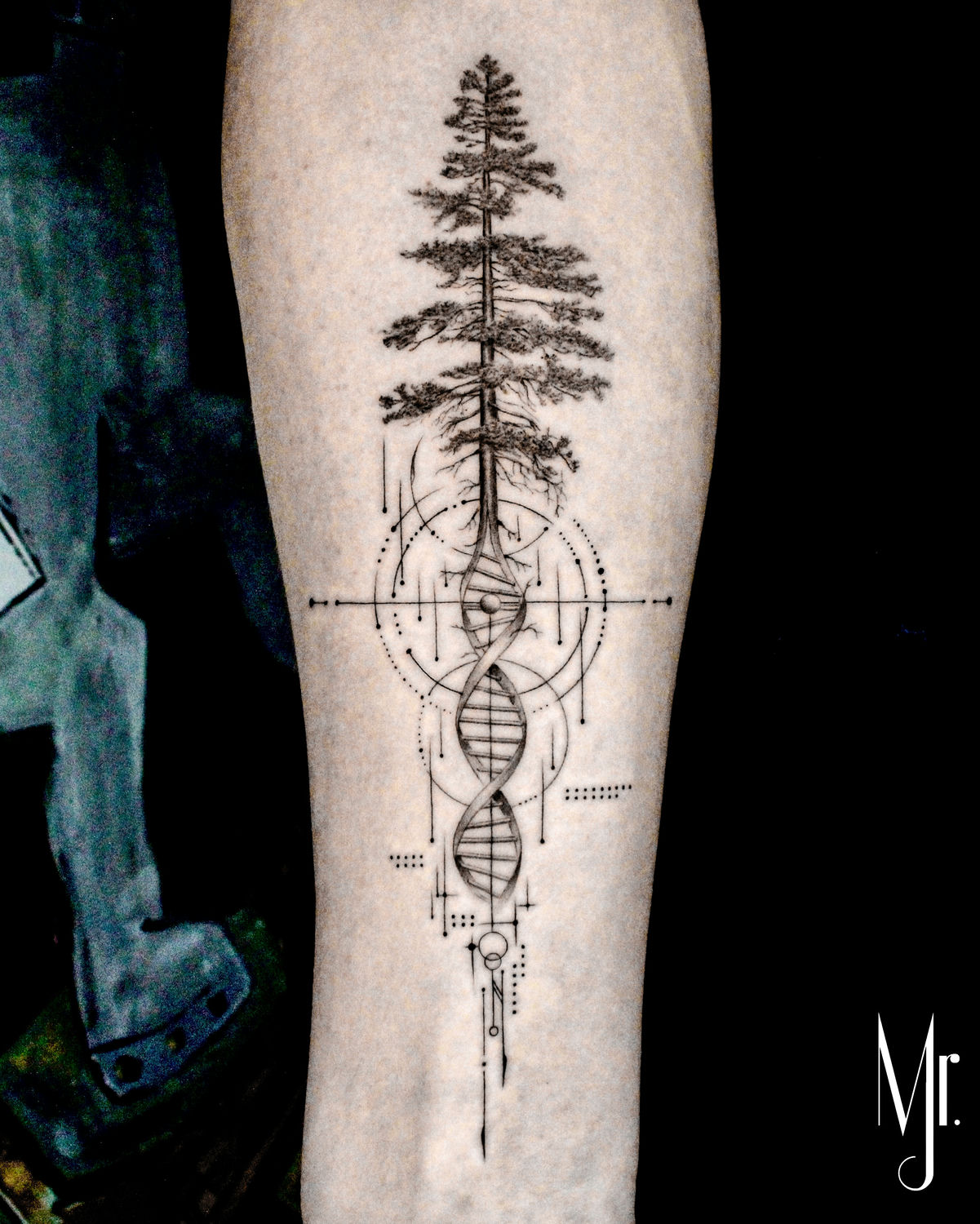
We often see you among the judges. What challenges do judges face in their work, and what advice would you give to those who want to attend conventions and win?
- Judging can be challenging because every artist’s vision is unique, and you want to be as fair as possible while recognizing technical skill and innovation. My advice to artists is to stay true to their style, focus on consistency, and push the boundaries of their work.
Many leading brands in the industry sponsor you. What does this collaboration bring you, and do you manage to influence the development of the tattoo industry?
- I’ve worked closely with Onyx Tattoo Supplies from Denmark since the beginning of my career. They sponsor me and have developed some of the best products in the industry, including my signature healing creams and tattoo foam. These collaborations allow me to give feedback that helps refine the tools for future generations of artists.
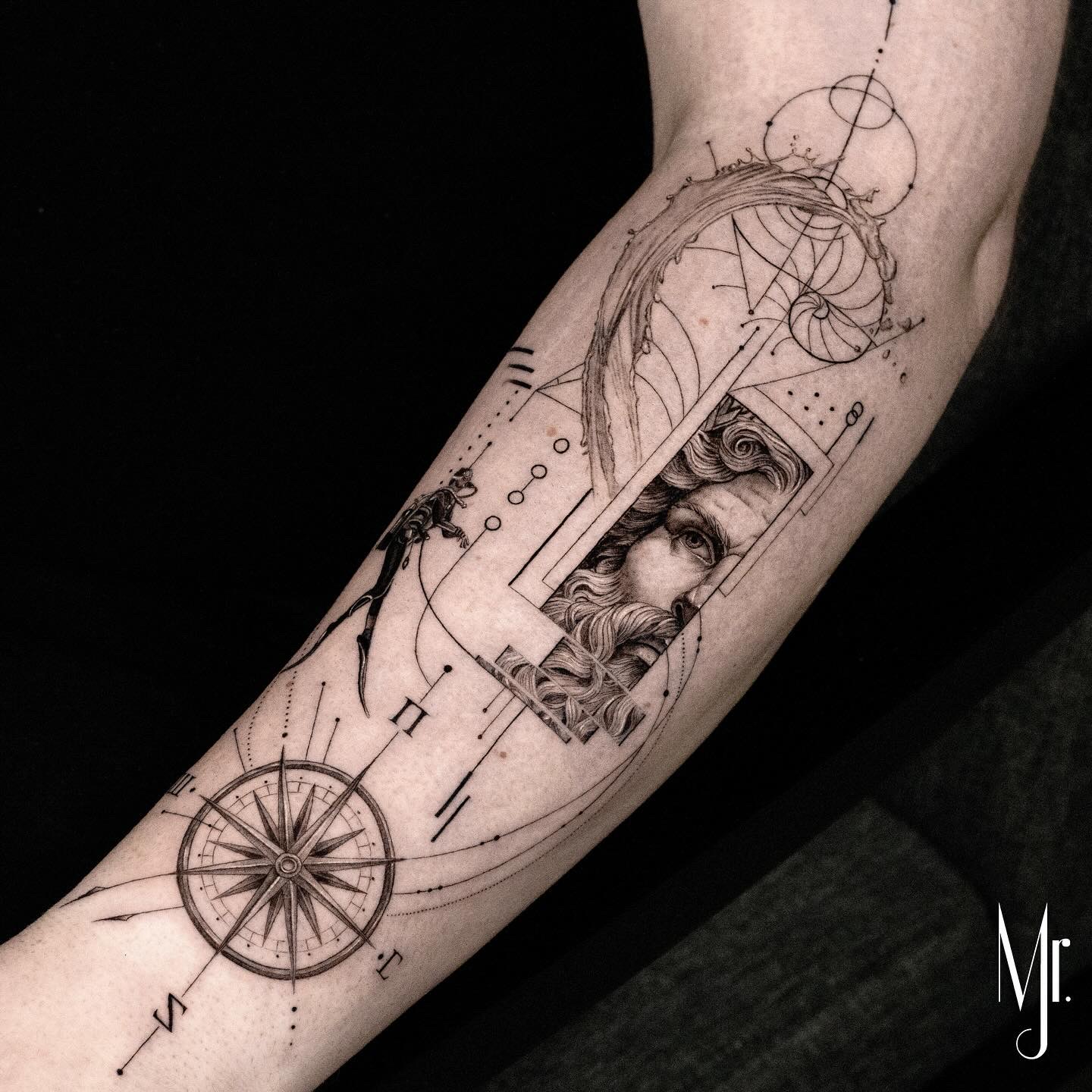
How do you feel about the rise in popularity of minimalist tattoos? Do you think this trend is here to stay?
- Minimalist tattoos are a great starting point for people who are new to tattooing. They are simple yet elegant, and I believe they will continue to be popular because of their timeless appeal.
What advice would you give to young tattoo artists who want to specialize in fine line work?
- Be patient and focus on learning the basics. Research the styles you admire and don’t be afraid to reach out to experienced artists for advice — I’m always happy to answer questions from aspiring artists. Start small with simple designs, and gradually work your way up to more complex pieces.
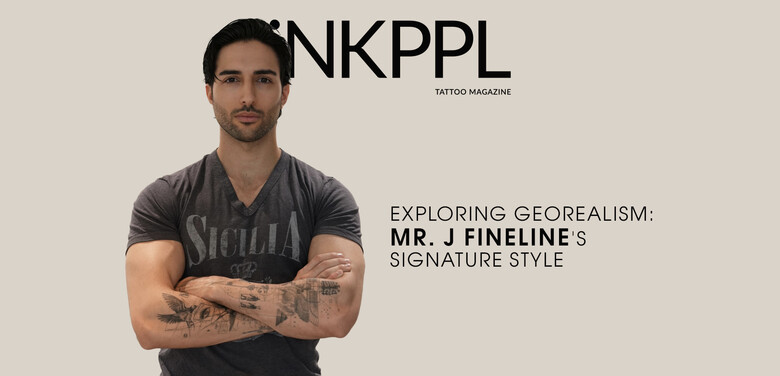

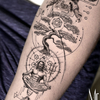
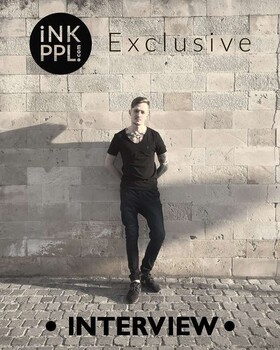
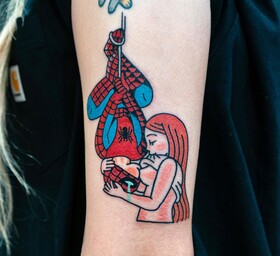
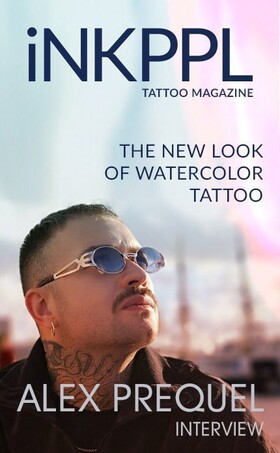
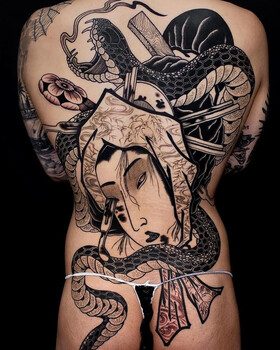
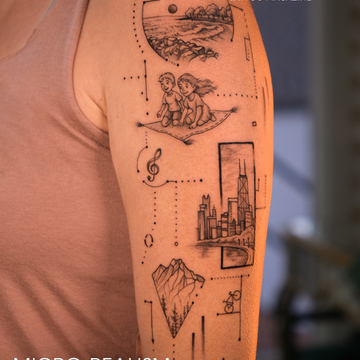
Comments (0)